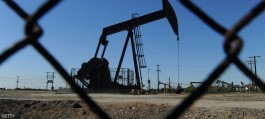OPEC oil production fell last month, with Iraq's exports falling due to a pipeline failure, at a time when a workers' strike in Nigeria halted its exports.
The size of the decrease in production from the Organization of the Petroleum Exporting Countries was about 310 thousand barrels per day, to reach an average of 28.8 million barrels per day, marking the lowest level in almost a year, according to a survey conducted by Bloomberg.
Last month, OPEC and its allies announced new production cuts, starting this month, with the aim of supporting global oil markets, but the major changes in supplies that occurred in April were not intended. Iraq contributed about 80% of this decline.
An Iraqi oil pipeline has stopped
A political dispute between the central government in Baghdad and the semi-autonomous Kurdistan region has halted the pipeline that normally transports 500,000 barrels per day to international markets via Turkey.
In Nigeria, the recovery in oil production during the recent presidential election period has faded, after a labor movement in the sector forced Exxon Mobil to drop shipments from several terminals over the past month.
Interfax: Russia does not see the need for a new cut in OPEC + production
However, supply cuts from OPEC and its allies - whether planned or accidental - have not greatly supported the oil market, which is facing concerns about economic growth in China and the world at large. West Texas crude futures fell briefly to below $72 a barrel in New York on Tuesday, marking their lowest since March.
Wise decision from OPEC
Although Saudi Arabia, which leads OPEC, was exposed to new criticism from the White House when it announced the latest production cuts on the second of last April, day after day, it turns out that this step was very wise, in light of the decline in oil prices.
The production of the entire OPEC+ alliance, which includes 23 countries, is expected to decrease by an additional 1.2 million barrels per day during the current month, with the entry into force of the new cuts. Russia , another member of the OPEC + alliance, also announced production cuts, in response to the sanctions resulting from its invasion of Ukraine, but the extent to which it implemented that step or not is still unclear.
On the supply front, most of the adjustments seen in April were not voluntary.
Iraq's production decreased by 250,000 barrels per day to 4.13 million - its lowest level since late 2021 - after Turkey suspended work on the pipeline that extends to the north of the country, against the background of a ruling issued in an international arbitration case. Although Baghdad and the Kurdistan region's authorities concluded a temporary agreement to restore the flow of oil again, technical problems are delaying the process of restarting the pipeline.
Falling oil production in Nigeria
The survey showed that Nigerian production fell by about 120,000 barrels per day to 1.32 million, reversing the rise recorded earlier this year, when the country reached an agreement with a former military commander in the oil-rich Niger Delta region.
Oil erases the gains of the sudden OPEC + decision amid fears of slowing demand
Workers at ExxonMobil's facilities returned to work in the country last week, allowing production and exports to resume after a two-week strike in the sector.
The Bloomberg survey was based on ship-tracking data, information provided by officials, and estimates from consulting firms including Kpler, Rapidan Energy Group, and Rystad Energy.
It is noteworthy that a meeting of the OPEC + alliance is scheduled to be held on the fourth of next June, with the aim of reviewing production levels for the second half of the year.






































